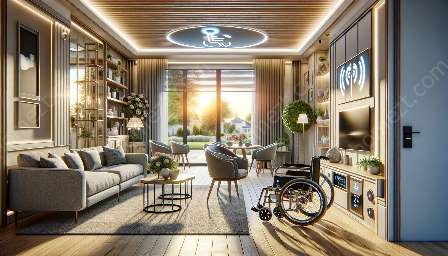Modern technology has revolutionized how we approach home design, particularly in the context of creating smart homes that cater to the needs of different demographics, including the disabled and elderly.
Designing for Disabled or Elderly in Smart Homes
When considering the design of smart homes for the disabled or elderly, it's crucial to prioritize safety, accessibility, and convenience. Personal emergency response systems play a pivotal role in achieving these objectives, as they provide a lifeline for individuals who may require immediate assistance in case of an emergency or health-related event.
The Importance of Personal Emergency Response Systems
Personal emergency response systems, commonly known as PERS, encompass a range of devices and technologies that enable individuals to secure help rapidly and efficiently. These systems are particularly beneficial for seniors and individuals with disabilities, allowing them to live independently while having peace of mind.
Integrating PERS into the smart home design for the disabled or elderly requires careful consideration of the individual's specific needs and limitations. The goal is to create an environment that not only promotes autonomy but also ensures a swift and appropriate response in case of a crisis.
Key Features of Personal Emergency Response Systems
- 24/7 Monitoring: PERS typically offers 24/7 monitoring, providing constant vigilance and immediate assistance when needed. This feature is especially crucial for individuals with mobility issues or medical conditions that require continuous supervision.
- Customized Alerts: Smart PERS can be tailored to the unique requirements of the user, allowing for personalized alerts and notifications based on the individual's specific health concerns or emergency scenarios.
- Integration with Smart Devices: In the context of intelligent home design, PERS can seamlessly integrate with other smart devices and systems, such as voice assistants, smart door locks, and medical monitoring equipment. This creates a cohesive and interconnected network that enhances overall safety and efficiency.
Intelligent Home Design and Personal Emergency Response Systems
The concept of intelligent home design goes beyond incorporating advanced technologies; it embodies a holistic approach to creating living spaces that are intuitive, adaptive, and responsive to the changing needs of residents. When integrating personal emergency response systems into intelligent home design, it's essential to consider the following:
- Seamless Integration: PERS should seamlessly integrate with the overall smart home ecosystem, allowing for effortless communication and coordination between different devices and systems.
- User-Friendly Interfaces: The interfaces of PERS should be user-friendly, catering to the unique abilities and limitations of the individuals using them. This includes intuitive controls, clear visual feedback, and voice-activated commands.
- Automation and Predictive Analytics: Intelligent home design leverages automation and predictive analytics to anticipate and respond to potential emergencies. PERS can benefit from these capabilities by preemptively identifying risks and initiating appropriate interventions.
Enhancing Safety and Independence
When personal emergency response systems are seamlessly integrated into smart homes designed for the disabled or elderly, they contribute significantly to enhancing safety and independence. These systems not only serve as a safety net, but also empower individuals to live with confidence and autonomy, knowing that help is readily accessible when needed.
In conclusion, personal emergency response systems are a vital component of intelligent home design, especially in the context of creating supportive environments for the disabled or elderly. By embracing the potential of PERS and integrating them thoughtfully into smart homes, designers and caregivers can effectively cater to the unique needs of individuals, promoting safety, independence, and peace of mind.


